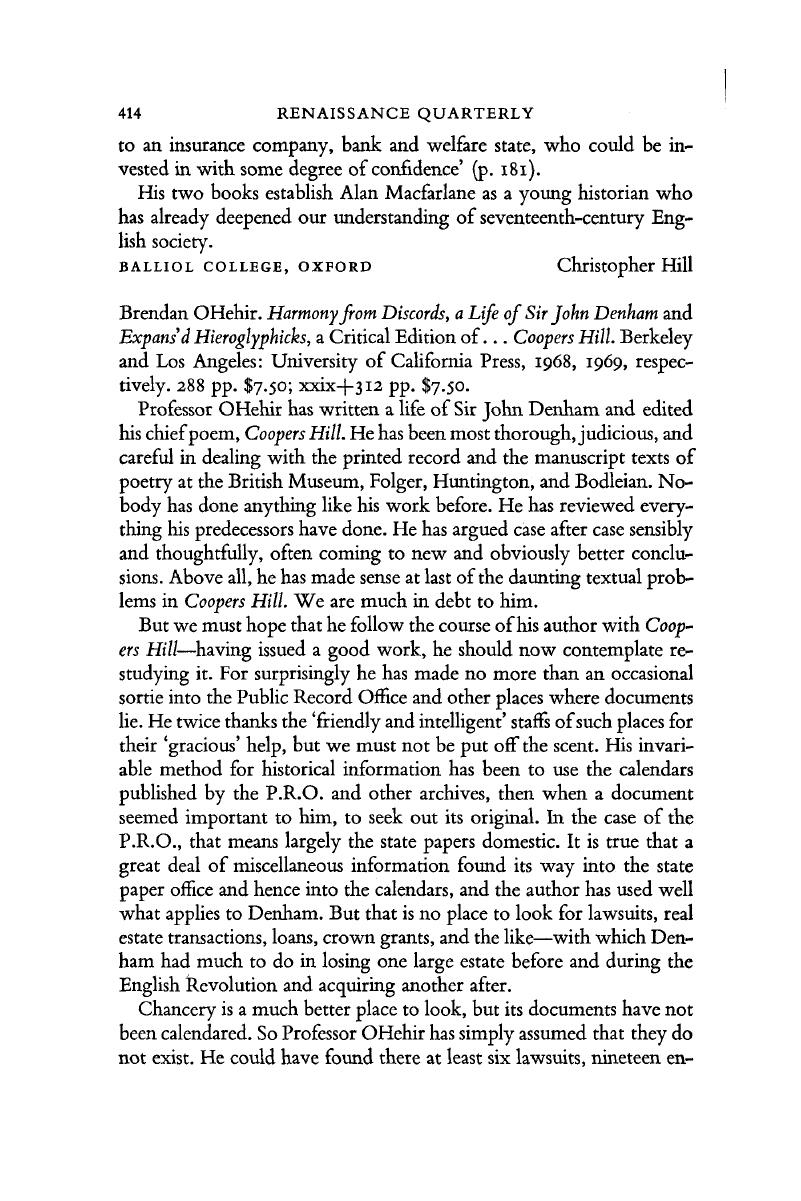No CrossRef data available.
Published online by Cambridge University Press: 20 November 2018

1 I shall soon be dealing with the principal documents elsewhere. They are c.2 /Chas. I/K.26/44; K.12/1; D.13 /59. c.9/49/40. c.10/60/18; 94/45; 94/52; 59/49; 52/68; 54/50; 53/69. c.8/158/59. c.54/3188/20; 3208/22; 3208/5; 3225/81; 3213/18; 3255/75; 3245/ 33; 3255 /14; 3246/13; 3260/22; 3738/17; 4061 /20; 4104/16; 4206/14; 4165 /19;423l /18; 4206/11, 3190/30; 4168/15. C.66/2951/29; 3000/27; 3040/13; 3083/10. S.P.46/127/327-30. K.B.27/1692/90.
2 He tells us not to ‘try to allegorize the entire description,’ but soon assures us that ‘Denham is suggesting that the stag hunt can be experienced more vividly and meaningfully as a stag hunt if one keeps in mind the recent tragedy of Strafford.’ Then in the next sentence but one: ‘On the other hand,’ the reader can never ‘overlook the fact that the hunt has a parallel in the world of human affairs’ (pp. 72-73).
3 OHehir, like Wasserman, reads the incident as Strafford's seeking the votes of his friends in Parliament when the attainder was going through (HD, pp. 33-34).
4 It was not decided in the Court of King's Bench, nor by the twelve ‘barons of the King's Bench’ (of whom there were none), nor by the twelve barons of the Exchequer (of whom there were four), nor by the Lord Keeper, who was not yet Sir John Finch. It began in the Court of Exchequer. It was moved up to the Court of Exchequer Chamber, a special court convened occasionally to hear appeals and cases of constitutional importance, presided over by a group of any of the judges of England. On this occasion its bench consisted of the four justices of King's Bench, the four justices of Common Pleas (whose chief was Finch), and the barons of the Exchequer. It was these twelve men who decided Hampden's case (HD, p. 16; EH, pp. 29, 182-184).
5 He has a few typographical errors, too. In HD, p. 235, the last matter, 1666 should be 1667; in EH, p. 83, ‘my’ in 1.129 should be ‘me'; p. 88, ‘declying’ of I.255 should be ‘declyning'; p. 114, ‘may’ of the first line of the footnote should be ‘nay'; and p. 178, ‘epening’ should be ‘opening.’ OHehir might have noticed that when Godolphin stole so liberally from Denham, he also had Waller too much in mind (EH, pp. 284f; To the King on his Navy, 11. 1, 25-26).